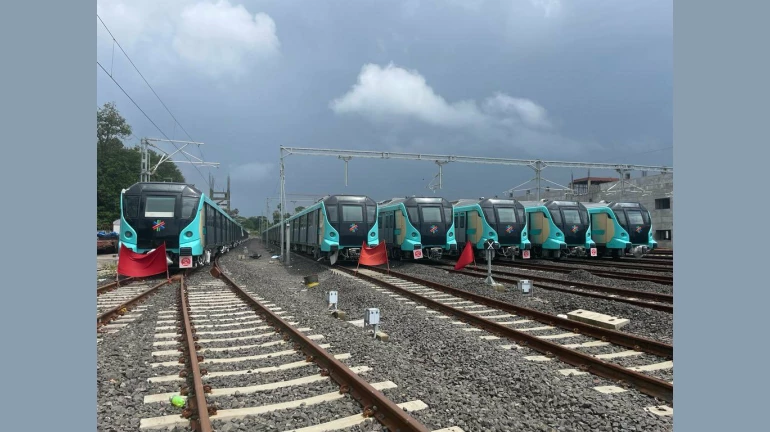
The Mumbai Metropolitan Region Development Authority (MMRDA) is expected to complete the Metro Line 7A project by December 2026. This new metro line will be an extension of Metro Line 7 and will extend to Chhatrapati Shivaji Maharaj International Airport (CSMIA) from Gundavali metro station.
This will make Line 7A the third metro line to service the airport, following Metro Line 1 and the soon-to-be-completed Metro Line 3. Metro Line 7A will span a length of 3.423 kilometres.
It will directly connect Andheri (East) to CSMIA. The route will feature both elevated and underground sections to navigate Mumbai's congested areas.
Plans for the project include constructing an underground station near Terminal 2, close to the CSMIA Metro Line 3 station. There will also be an elevated station at Airport Colony. Metro Line 3 will also be connected with Metro Line 8, which will connect CSMIA and the upcoming airport in Navi Mumbai.
Metro Line 9 will extend Line 7 from Dahisar East to Mira Road. After the completion of Line 9, CSMIA will become directly accessible from the Mira Bhayandar region. The time saved could be up to sixty minutes.
Despite various challenges, the construction of Metro Line 7A is progressing well. Approximately 52% of the project is already complete. The routing involves complex technical work as the line passes through both underground sections along the Western Express Highway and elevated portions along the Sahar Elevated Road.
Challenges include relocating slums in Bamanwada and Valmiki Nagar to Vile Parle and transferring property under the control of the Airports Authority of India (AAI). The project also requires the relocation of the Purushottam Giri Ashram and shrine. There has been sophisticated diversion of essential utilities, including a 2400 mm water pipeline and an 1800 mm sewer line.
The construction utilises a Dual Mode Hard Rock Tunnel Boring Machine (TBM) specially designed for Mumbai's rocky terrain. The TBM operates at an average speed of 4 to 5 meters per day and has a cutter head diameter of 6.68 meters. To ensure durability, the twin tunnels, each 2.035 km long, are supported by precast ring segments.





